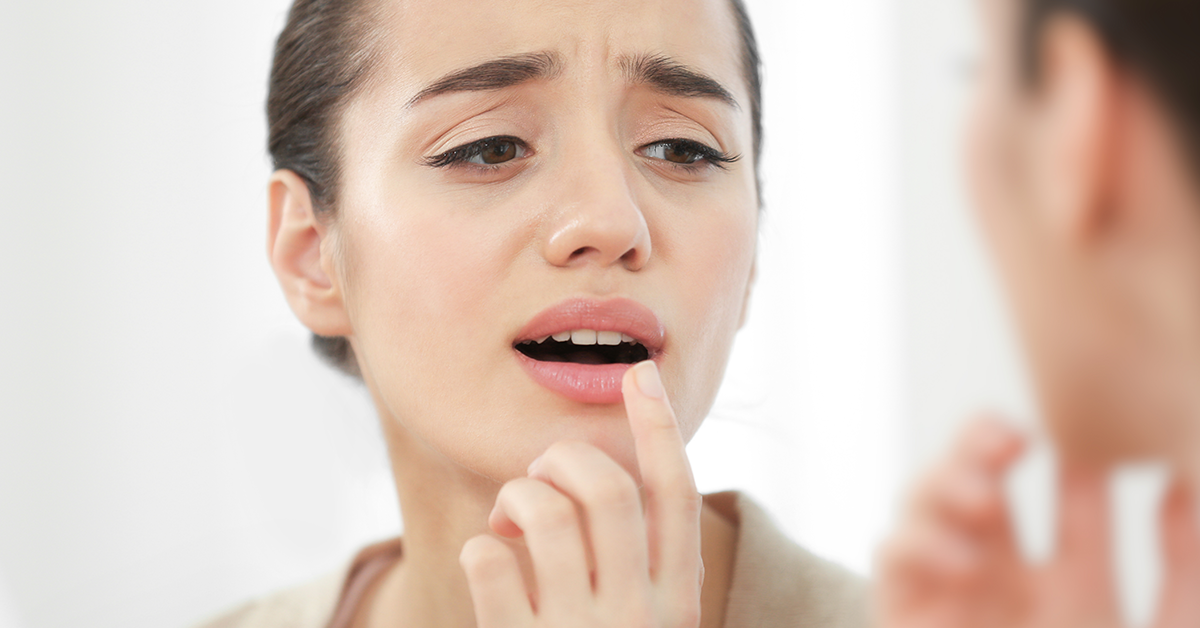
May is observed internationally as Lupus Awareness month to make it easier for people to talk about their problems during lupus. While oral lupus sores and nasal sores are the most uncomfortable and painful mouth sores, they are also one of the most common features of lupus.
It is estimated that more than 40% of people diagnosed with Systemic Lupus Erythematosus (SLE) show mouth ulcers or sores. Read on to learn more about the causes, symptoms, and treatment options of lupus mouth sores.
Lupus is a chronic autoimmune disease that can cause impairment in the general immune system or any part of the body. Mouth sores are a symptom of active lupus. A biopsy is required to know for sure whether the mouth sores are associated with the active disease or not. Years of extensive research have led to experts claiming that lupus mouth sores are often the side effects of the medication taken to treat lupus.
Mouth sores or ulcers occur due to the erosion of the overlying skin. This leaves the underlying layer of tissue exposed. Such oral lesions, which result from a drug reaction, are painless and red or white. Lupus mouth sores are most likely to occur on the inside of cheeks, the lower lip, or the roof of the mouth (the hard palate).

It is common knowledge that many people with lupus start developing skin problems of many sorts. As mentioned above, some of these include lupus mouth sores, which could be either painful or entirely painless. The painless subtype of mouth sores is white with a red outline, which appears to be a raised bump. However, the other subtype of lupus mouth sores is painful, which appears red and is surrounded by white lines.
Oral ulcers are also referred to as mucosal ulcers. Their widespread inflammation is termed ‘mucositis.’ They occur in the mucosal surface of the skin, such as in the mouth, nose, or vagina. When the person develops SLE, and the condition worsens so that the body’s major organs start getting affected, lupus mouth sores can reach the lips.
Research undertaken on SLE patients has concluded that these mouth sores symptoms of lupus feel like regular mouth ulcers, the type you are likely to get after accidentally biting the inside of your cheek or by biting the inner skin of your lips in dry weather. Their texture often feels like the roof of your mouth after burning it by eating or drinking something hot.
It is often reported that people diagnosed with SLE who tend to take too much stress and are overworked have a greater tendency to develop mouth ulcers. When occurring along with joint pain, hair loss, and rashes on multiple areas of the body, these mouth ulcers are definite symptoms of an onset of a lupus flare.
These sores could be triggered by the following factors that are unavoidable:
Other causes of lupus mouth sores that can be avoided are:
It is commonly known that hard or sharp-edged tools, eating utensils, or food items are the main causes of mouth ulcers. They tend to erode the upper layer of the mucosal skin and leave the underlying tissue exposed to foreign particles or bacteria that make them worse.
Here are a few methods to decrease the possibility of developing one of the most common lupus symptoms: mouth sores.
Different people may show a reaction to different food items. It is not mandatory for someone’s lupus mouth sores to flare up by consuming chocolates and tomatoes, or both. Some people may find their mouth ulcers getting worse due to the excessive intake of tomatoes. It is important to keep track of your diet and avoid any food item that you think may be responsible for exacerbating your mouth sores.
With fewer or no side effects, some medications help speed up the healing process of lupus mouth sores. These include antimicrobial mouthwashes, painkillers in a mouthwash, gel or spray, and corticosteroid lozenges.
While these are easily available at most pharmacies without prescriptions, they may not give you the relief that you are looking for. These medicated mouthwashes do have healing properties, and they can also help alleviate some pain and prevent further infection, but they are not helpful for all patients of SLE.
It is essential always to read package instructions and follow the directions or the method prescribed on the bottles for optimum results. You should never take these medications without referring to your doctor about any other medications you may already be taking to reduce the potential risk of an unwanted drug interaction.
Often, the medicines prescribed by doctors to control SLE are enough to treat or at least decrease the lupus mouth sores to an extent. Some doctors prescribe steroid tablets or oral gels, while others resort to anti-malarial drugs. The application of steroids to oral ulcers allows the sores to heal sooner than usual. For the type of ulcers that are particularly painful and cause constant discomfort, doctors usually prescribe an oral anesthetic, which is typically benzocaine that helps in reducing the pain and enables faster healing.
If the underlying cause for your mouth sores during lupus flares is an iron or a Vitamin B12 deficiency, then your doctor is likely to prescribe you B12 supplements to make up for the lost nutrients.
See Also: Food Allergies And Intolerances
We recommend consulting with your doctor before resorting to home remedies to make your lupus mouth sores go away, as it may worsen to a cluster of mouth ulcers, hinting at the onset of a lupus flare. As we have previously mentioned, dental hygiene and a healthy, well-balanced diet are important to prevent the likelihood of a sore mouth occurrence during lupus.